第15章 ON THE ADVISABLENESS OF IMPROVING NATURAL KNOWLEDG
Some twenty years before the outbreak of the plague a few calm and thoughtful students banded themselves together for the purpose, as they phrased it, of "improving natural knowledge." The ends they proposed to attain cannot be stated more clearly than in the words of one of the founders of the organisation:--"Our business was (precluding matters of theology and state affairs) to discourse and consider of philosophical enquiries, and such as related thereunto:--as Physick, Anatomy, Geometry, Astronomy, Navigation, Staticks, Magneticks, Chymicks, Mechanicks, and Natural Experiments; with the state of these studies and their cultivation at home and abroad. We then discoursed of the circulation of the blood, the valves in the veins, the venae lacteae, the lymphatic vessels, the Copernican hypothesis, the nature of comets and new stars, the satellites of Jupiter, the oval shape (as it then appeared) of Saturn, the spots on the sun and its turning on its own axis, the inequalities and selenography [24] of the moon, the several phases of Venus and Mercury, the improvement of telescopes and grinding of glasses for that purpose, the weight of air, the possibility or impossibility of vacuities and nature's abhorrence thereof, the Torricellian experiment [25] in quicksilver, the descent of heavy bodies and the degree of acceleration therein, with divers other things of like nature, some of which were then but new discoveries, and others not so generally known and embraced as now they are; with other things appertaining to what hath been called the New Philosophy, which from the times of Galileo at Florence, and Sir Francis Bacon [26] (Lord Verulam) in England, hath been much cultivated in Italy, France, Germany, and other parts abroad, as well as with us in England."The learned Dr. Wallis,[27] writing in 1696, narrates in these words, what happened half a century before, or about 1645. The associates met at Oxford, in the rooms of Dr. Wilkins, who was destined to become a bishop; and subsequently coming together in London, they attracted the notice of the king. And it is a strange evidence of the taste for knowledge which the most obviously worthless of the Stuarts shared with his father and grandfather, that Charles the Second was not content with saying witty things about his philosophers, but did wise things with regard to them. For he not only bestowed upon them such attention as he could spare from his poodles and his mistresses, but, being in his usual state of impecuniosity, begged for them of the Duke of Ormond; and, that step being without effect, gave them Chelsea College, a charter, and a mace: crowning his favours in the best way they could be crowned, by burdening them no further with royal patronage or state interference.
Thus it was that the half-dozen young men, studious of the "New Philosophy," [28] who met in one another's lodgings in Oxford or in London, in the middle of the seventeenth century, grew in numerical and in real strength, until, in its latter part, the "Royal Society for the Improvement of Natural Knowledge" had already become famous, and had acquired a claim upon the veneration of Englishmen, which it has ever since retained, as the principal focus of scientific activity in our islands, and the chief champion of the cause it was formed to support.
It was by the aid of the Royal Society [29] that Newton [30]
published his Principia. If all the books in the world, except the Philosophical Transactions, [31] were destroyed, it is safe to say that the foundations of physical science would remain unshaken, and that the vast intellectual progress of the last two centuries would be largely, though incompletely, recorded. Nor have any signs of halting or of decrepitude manifested themselves in our own times.
As in Dr. Wallis's days, so in these, "our business is, precluding theology and state affairs, to discourse and consider of philosophical enquiries." But our "Mathematick" is one which Newton would have to go to school to learn; our "Staticks, Mechanicks, Magneticks, Chymicks, and Natural Experiments"constitute a mass of physical and chemical knowledge, a glimpse at which would compensate Galileo [32] for the doings of a score of inquisitorial cardinals; our "Physick" and "Anatomy" have embraced such infinite varieties of beings, have laid open such new worlds in time and space, have grappled, not unsuccessfully, with such complex problems, that the eyes of Vesalius [33] and of Harvey [34]
might be dazzled by the sight of the tree that has grown out of their grain of mustard seed.
The fact is perhaps rather too much, than too little, forced upon one's notice, nowadays, that all this marvellous intellectual growth has a no less wonderful expression in practical life; and that, in this respect, if in no other, the movement symbolised by the progress of the Royal Society stands without a parallel in the history of mankind.
A series of volumes as bulky as the "Transactions of the Royal Society" might possibly be filled with the subtle speculations [35]
of the Schoolmen;[36] not improbably, the obtaining a mastery over the products of mediaeval thought might necessitate an even greater expenditure of time and of energy than the acquirement of the "New Philosophy"; but though such work engrossed the best intellects of Europe for a longer time than has elapsed since the great fire, its effects were "writ in water,"[37] so far as our social state is concerned.